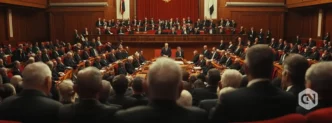In a development that could well prove to be divisive, the President of Ecuador announced on Tuesday night that the country is going to end subsidies that keep down the cost of fuel. Lenin Moreno, the current Ecuador president stated that in addition to the ending of subsidies, the government is also going to send proposals to congress with regards to labor rules and tax overhaul. He stated that the aim of these steps is to recharge the economy and stimulate growth. Moreno addressed the nation through a simultaneous radio and television broadcast, in which he laid out his plans. However, it goes without saying that it will create a lot of heartburn among the populace.
Advertisement
Until last night, gasoline and diesel were subsidized to the tune of $1.3 billion a year by the government. Hence, the discontinuation of the subsidy package is going to raise the cost of both substantially. The price of gasoline will go from $1.85 a liter to $2.30 a liter, while on the other hand diesel price will skyrocket from $1.03 a liter to $2.27 a liter. However, Moreno also shared some of the specifics of the tax overhaul that he is going to usher in. He stated that a special three-year tax is going to be imposed on Ecuadorian companies which generate revenues in excess of $10 million a year. The proceeds will go towards health and education. In addition to that, the new proposals will also call for a drop in taxes for companies in the tech and cellular equipment sectors.
Additionally, the government also wants to make the hiring process easier for companies in order to raise employment levels. During the address, Moreno spoke about the aim of these reforms. He stated, “The goal is more work, more entrepreneurship, and better opportunities … boosting economic growth and employment.” There was another important announcement as well as pertaining to employees in the public sector. Moreno announced that since public sector workers are better paid than those in the private sector, they would need to contribute a day’s pay every month to the government.







